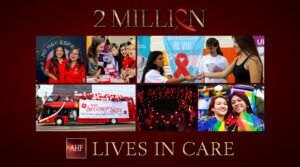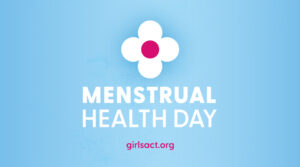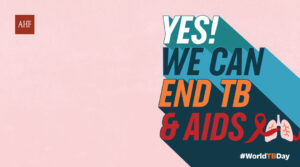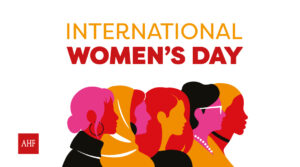Chlamydia is a sexually transmitted infection (STI), so anyone who is sexually active can get it. However, the infection is more common in some groups, such as young people and gay and bisexual men.
Fortunately, chlamydia can be easily treated and cured. When left untreated, it can cause long-term complications, such as infertility. It can also increase the chance of transmitting or acquiring HIV.
How is it transmitted?
Chlamydia is caused by a bacterium called Chlamydia trachomatis. It can be transmitted through semen, pre-ejaculatory fluid or vaginal fluids, in practices such as anal, oral and vaginal sex if a condom is not used.
Transmission is also possible if sex toys are shared without washing them or covering them with a new condom each time they are changed from person to person. In fact, chlamydia can be contracted without the need for penetration, by skin-to-skin contact with a person who has the infection.
The ways in which chlamydia is not transmitted are by kissing or hugging, or by sharing towels or cutlery.
For people living with HIV who do not receive treatment for that virus, untreated chlamydia can increase the chances that they will transmit HIV. This is because untreated STIs can increase the amount of virus (viral load) in sexual fluids.
In people not living with HIV, having chlamydia can increase the chance that they will become infected with HIV if they are exposed to the virus.
So you can prevent it
Using a condom for anal or vaginal penetration, or a latex barrier for oral sex (which you can also make from a condom) are ways to prevent the transmission of chlamydia.
Also, remember that it’s not a good idea to share your sex toys, but if you do, wash them or cover them with a new condom before someone else uses them.
When you’re sexually active, it’s a good idea to get tested regularly for chlamydia and other STIs. People with HIV are suggested to have a sexual health checkup at least once a year. Likewise, gay and bisexual men who have sex without a condom, including oral sex, with new or casual partners are advised to have a sexual health checkup every three months.
What does chlamydia look and feel like?
Chlamydia can affect the anus, penis, cervix, throat, and eyes. Its symptoms usually appear between one and three weeks after infection. However, many people who have chlamydia don’t know they have it, because more than 75% of people have no symptoms.
When there are, symptoms of chlamydia can include a milky discharge from the genitals and painful urination. Discharge from the penis is more common than discharge from the vagina. Other less common symptoms are pain or swelling in the testicles.
Pain in the lower back and abdomen could be symptoms of this infection, as well as vaginal bleeding during sex, bleeding between periods, and heavier bleeding during menstruation.
When the infection has lodged in the anus, there may be tenderness around it and also discharge. The eye infection causes inflammation, discharge and pain. Throat infection is rare and usually has no symptoms.
If chlamydia in the vagina is not treated, it can lead to pelvic inflammatory disease, an infection of the upper part of the reproductive system in people with a vulva, which can cause chronic pelvic pain, infertility, and ectopic pregnancy (a pregnancy that develops outside the womb uterus). Untreated chlamydia can also cause problems with the testicles and lead to decreased fertility or infertility.
Treatment is simple and effective
Chlamydia is treated with antibiotics, which are very effective in eradicating it. It is important to take the entire treatment to ensure that the infection is completely eliminated, and not to build resistance in the bacteria.
To prevent reinfection, you should not have sex without a condom for one week after finishing treatment. If your partner has not yet been tested or treated, you may need to abstain for longer, or use a condom in all your encounters.
Remember that your sexual health is in your hands, protect yourself and avoid exposing yourself to greater risks, such as HIV infection. And if you want to take a free test or want condoms at no cost, at AHF Latin America and the Caribbean we have them for you. Locate our offices closest to you and learn about all our services.






